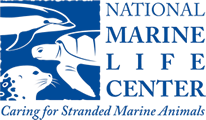Don’t Feed Wild Dolphins!
 Dolphins Need Our Help. Serious and even fatal dolphin injuries from interactions with recreational fishing gear and boats are on the rise. You can prevent injuries to dolphins and other sea life – and have a better day on the water – by following a few tips designed to protect marine animals. The following “Best Practices” were developed by marine scientists and wildlife managers working with boaters, anglers, and fishing guides.
Dolphins Need Our Help. Serious and even fatal dolphin injuries from interactions with recreational fishing gear and boats are on the rise. You can prevent injuries to dolphins and other sea life – and have a better day on the water – by following a few tips designed to protect marine animals. The following “Best Practices” were developed by marine scientists and wildlife managers working with boaters, anglers, and fishing guides.
1) Never feed wild dolphins – it’s harmful and illegal
• Feeding teaches dolphins to beg for food and draws them dangerously close to fishing gear and boat propellers.
• Feeding is illegal under the federal Marine Mammal Protection Act.
2) Reuse or share leftover bait
• Freeze leftover bait for later or give it to your fishing neighbor.
• Dumping leftover bait may attract dolphins to fishing areas to beg or steal bait and catch.
3) Reel in your line if dolphins appear
• Reel in and wait for dolphins to pass to avoid losing your bait or catch and prevent potential harm to dolphins.
• Never cast toward dolphins.
4) Change locations if dolphins show interest in bait or catch
• Move away from dolphins to avoid unintentionally hooking one and prevent damage to gear or catch.
 5) Release catch quietly away from dolphins when and where it is possible to do so without violating any state or federal fishing regulations
5) Release catch quietly away from dolphins when and where it is possible to do so without violating any state or federal fishing regulations
• Feeding or attempting to feed a marine mammal in the wild is prohibited.
6) Check gear and terminal tackle
• Inspect your gear often to avoid unwanted line breaks – even small amounts of gear in the water can be harmful to wildlife if entangled or ingested.
7) Use circle and corrodible hooks
• Circle hooks may reduce injuries to fish, dolphins, and sea turtles.
• Corrodible hooks (any hook other than stainless steel) eventually dissolve.
8) Stay at least 50 yards away
• Stay a safe distance from wild dolphins to avoid causing potential harm.
• Maintaining a safe distance helps keep dolphins wild.
9) Prevent wildlife entanglements – recycle fishing line
• Place all broken or used fishing line in a Monofilament Fishing Line Recycling Bin.
• If no recycling bins are available, place broken or used fishing line that has been cut into pieces in a lidded trash can.
10) Stash your trash
• Littering is illegal and can be harmful to wildlife.
• Collect any trash you’ve left behind and place it in a lidded trash can.
This information is from the National Oceanic and Atmospheric Administration (NOAA), “Don’t Feed Wild Dolphins” campaign, as presented at the National Marine Animal Stranding Conference 2010.

